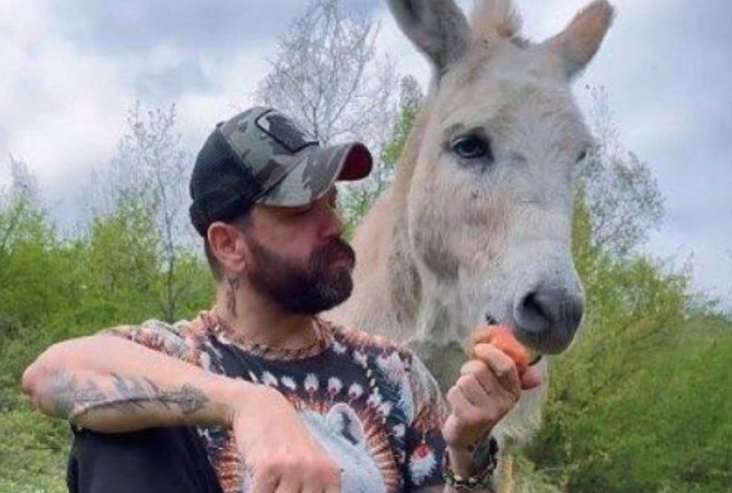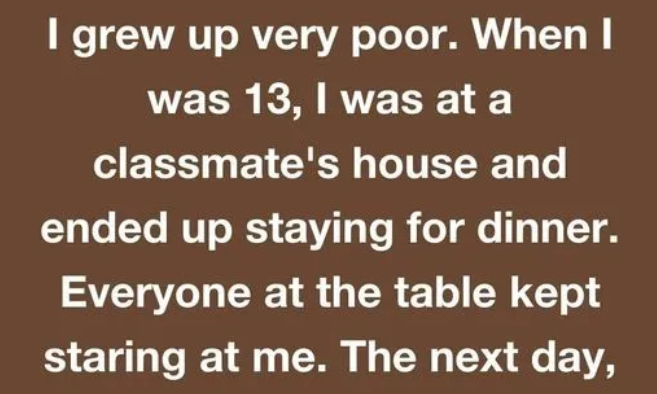My stepson, 16, expressed his desire to bring his girlfriend along on our family trip to Spain. My husband explained that our budget allowed for only four tickets, meaning my daughter, 18, would need to stay behind. I questioned him, “Are you prioritizing a guest over your stepdaughter?” He replied firmly, “That guest is my son’s choice!” I felt helpless, and we departed without my daughter.
Upon our return, we were shocked to discover our home in disarray. The damage was severe—shattered glass scattered across the kitchen floor, a deep dent in the living room wall, and what appeared to be burn marks on the carpet. My stomach sank. I called out for my daughter, my voice trembling with growing fear.
Silence.
I rushed upstairs and found her door locked. I pounded on it, calling her name, dreading the worst. After several tense moments, she opened the door. She looked exhausted. Worn. Physically unharmed, but clearly emotionally broken.
At first, she said nothing. She simply walked past us, her bag already packed, and headed to a friend’s car waiting outside. I followed, begging her to talk, but she only said, “I can’t stay here anymore. You chose to leave me. He didn’t.”
I turned to my husband, my mind racing with questions. He looked as bewildered as I felt.
“What do you mean, he didn’t?”
Five days earlier, the four of us—my husband, my stepson, his girlfriend, and I—had left for Barcelona, hoping for a joyful summer escape. But the trip was strained from the moment we boarded the plane.
My thoughts kept drifting to my daughter. She had just graduated high school, worked diligently all year, and had been eagerly anticipating this trip for months. I had pleaded with my husband, even offering to stay home so she could go.
But he insisted, “You’re her mother. You need to be there.”
In hindsight, I wish I had pushed harder.
In Spain, the trip fell short of expectations. The girlfriend was constantly on her phone, snapping photos and pulling my stepson to every tourist spot for bragging rights. My husband brushed it off, saying, “That’s just how teenagers are.”
I was counting down the days until we returned home.
I tried reaching out to my daughter during the trip. She never answered. I assumed she was upset, and understandably so. But when I saw the state of our home—and her reaction—I knew something far worse had occurred.
That night, I received a brief, piercing text from her:
“You left me with a stranger. Not only his girlfriend—him.”
My heart stopped.
I instantly knew who she meant.
My ex-husband, her biological father, lived two hours away. We had divorced when she was seven. He was rarely present for milestones like birthdays or school events, and when he was, his promises were empty.
I thought he was out of her life for good.
I called her. This time, she picked up.
Her voice was calm, almost eerily steady.
“He found out you were gone,” she said. “I don’t know who told him, but he showed up. Walked in like he owned the place. I told him to leave, but he said he wanted to talk.”
I swallowed hard. “Did he hurt you?”
“No,” she replied. “But he made it clear that if you and your new family didn’t want me, he’d take me.”
His words sliced through me.
I asked where she was. She said she was staying with her best friend’s family for the time being and needed space. I honored her request.
The next morning, I confronted my husband.
“Someone told her father we were away,” I said. “It had to be you or your son.”
He looked stunned. “I didn’t say anything. And I doubt my son even remembers him.”
I held his gaze. “But his girlfriend—she posted countless photos, tagging our location every time. Anyone could’ve seen we were gone.”
His face shifted. He understood.
He questioned his son, who shrugged and said, “Yeah, she posted. What’s the big deal? Everyone does it.”
I was furious. “Everyone does it” had put my daughter in danger. And worse, she had faced it entirely alone.
But the story didn’t end there.
A week later, my daughter returned—to gather the rest of her belongings. She planned to live with her friend’s family long-term and begin college from there.
That day, she handed me a notebook. “I couldn’t talk when you got back,” she said. “So I wrote it all down.”
The pages were filled with her thoughts.
She wrote about feeling unwanted. About how being left behind confirmed her deepest fear—that she didn’t truly belong in our “new family.” She described how, since my remarriage, she felt like an outsider in her own home.
She detailed the hurtful things my stepson had said about her when he thought she wasn’t listening. That she was “odd,” “dull,” “too reserved.”
She wrote about her efforts to fit in, how she admired my husband and wanted to see him as a father figure—but always felt like she was imposing.
I wept as I read every word.
My husband read it too. For the first time, I saw shame cross his face.
And perhaps he deserved to feel it.
While I blamed myself for going on the trip and not fighting harder, he had made the final decision. He had weighed two children—one his by blood, one not—and chosen the one who “earned” a guest. That choice spoke volumes.
The guilt weighed heavily on us both, but guilt alone wouldn’t mend what was broken.
So I began to show up.
I didn’t pressure her to return home. I didn’t send long messages or make grand gestures. Instead, I brought lunch to her workplace. I sent her a book she once said she loved. I attended her college orientation alone when she preferred it that way.
Slowly, carefully, we started to rebuild.
My husband made an effort too. He apologized to her directly, admitting he was wrong and acknowledging the pain his decision caused. She accepted his apology but kept her distance.
As for my stepson, he and his girlfriend eventually parted ways. She betrayed him not long after the trip. He came home one day, eyes red, and muttered something about life balancing things out. I stayed quiet.
But I thought it.
Life has a way of settling scores. Not with fanfare, but with quiet finality.
Months later, my daughter began college and flourished. Her smiles in photos were brighter than they’d been in years. She found a part-time job she enjoyed, joined a writing group, and built new friendships.
Then, one Sunday afternoon, she surprised me.
She came to the house.
“I wanted to pick up some old art supplies,” she said.
I welcomed her in. We shared tea in the kitchen, and she looked around, as if the space felt both familiar and distant.
She asked, “How’s everything here?”
I was honest. Things had shifted. Her stepbrother was quieter now. My husband was more engaged. We used phones less at the table and had more real conversations.
She nodded. “That’s good to hear.”
Then she said something that stayed with me.
“This house will never feel the same to me. But I’m glad it’s becoming a place where people notice each other.”
She hugged me before she left. It wasn’t a long, emotional embrace—just a genuine one.
In that moment, I understood something.
Choices we make, even ones that seem minor—like who gets a plane ticket—are never only about practicalities. They’re about love. About loyalty. About who feels valued.
The trip to Spain wasn’t a getaway. It was a wake-up call.
We left as four and returned to fractured trust.
But sometimes, you need to break something to learn how to build it stronger.
Our home is quieter now. My daughter no longer lives here, but her room remains hers. I keep it tidy. I open the windows on sunny days. I place fresh flowers on her desk when I know she’s coming by.
And when someone posts a photo or tags a location, we discuss it. Not to control, but to be aware. Because care lives in the small details.
Here’s the truth: family isn’t defined by blood. It’s defined by who shows up. Who listens. Who stands by you, even when it’s hard.
If you’ve ever faced a choice between fairness and love—choose love. Always.
It may hurt at times, but it will guide you back to what truly matters.
If this story resonated with you, share it. Someone out there might need a reminder that it’s never too late to make things right. That even broken connections can be mended—with time, honesty, and care.
Please like this post—it helps stories like this reach more people who need to hear them.




